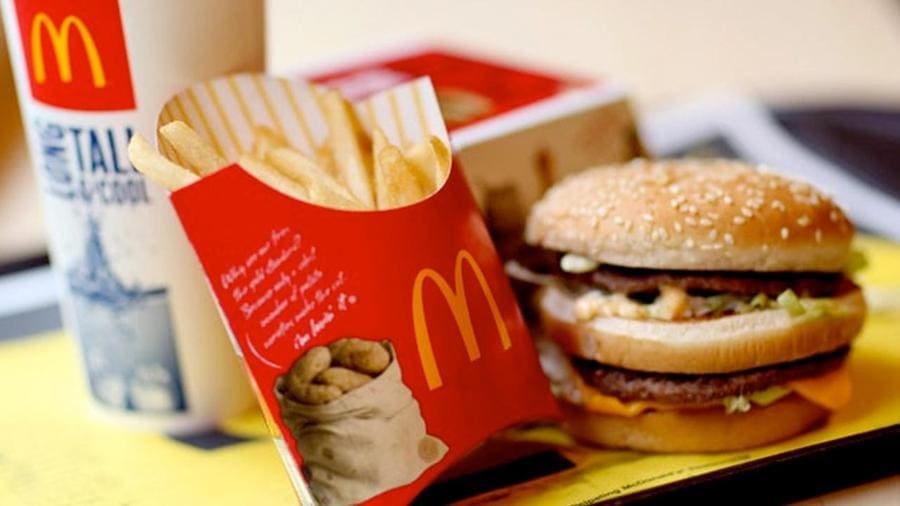
Since the first McDonald's (MCD) opened its doors in 1955, the fast-food restaurant chain has become known as a paragon of both predictability and menu stability.
More than one generation has certain memories tied to everything from the Happy Meal to the Egg McMuffin while seasonal items are rarer (and, subsequently, attract much more of a cult following when they do come) compared to competitors. When surveys looked at customer loyalty, McDonald's also consistently scored very near the top.
DON'T MISS: Here Are Some of the Most Trusted Brands in America
The flip side of brand consistency is that any change could generate customer ire — in November 2022, some McDonald's fans took to social media to complain about how the paper-based spoons the chain introduced to cut down on plastic waste "ruined the taste" of the McFlurry.

New McDonald's Burgers Will Have 'Meltier Cheese,' Other Key Changes
This time, the Golden Arches is taking even more of a risk by tweaking some of its most foundational items. On April 17, McDonald's announced that it is updating all of its burgers, affecting everything from the Big Mac and Quarter Pounder to the regular cheeseburgers.
What McDonald's dramatically calls changes meant to make "the best burgers ever" include everything from "meltier cheese" to more Big Mac sauce and onions that are added to the patty while it is still cooking on the grill for more of a caramelized flavor.
"We found that small changes, like tweaking our process to get hotter, meltier cheese and adjusting our grill settings for a better sear, added up to a big difference in making our burgers more flavorful than ever," Chad Schafer, senior director of culinary innovation for McDonald's USA, said in a statement.
The updated burgers have been tested in Australia and Canada and, as of April 17, are already available in U.S. cities such as Los Angeles, San Francisco, Denver, Salt Lake City, Tucson, and their suburbs.
Burgers made with the formula will be rolled out nationwide by the end of 2023.
'If It's Not Broke, Don't Fix It' Doesn't Always Work For Fast Food
The change might, some industry analysts stipulate, be meant to keep its mass-produced burgers competitive with what smaller chains like In-N-Out are able to offer — the updated burgers initially rolled out in mostly West Coast markets.
It was back in 2018 that McDonald's made the full switch from frozen to fresh beef at all of its restaurants. While the taste was welcomed by its customers and brought in strong sales, the shorter shelf life took a bit out of the bottom line.
While McDonald's said that the latest changes to its burgers have received "rave reviews," some accusations of messing with the sacred have already started pouring in. Customers of different ages often compare its present-day burgers with an ambiguous taste they remember from their youth and childhoods.
"I think it was about twenty years ago that I started seeing a change in McDonald's burgers," one Twitter user wrote. "Whatever they use now, it's not what they used in the past."
McDonald's, in turn, promised that the updates would improve but not fundamentally change the classic taste fans remember.
"I'll always remember my first burger from McDonald's," Schafer wrote. "And now my culinary team and I have the best job in the world: thinking about ways to bring even more of that iconic McDonald's taste to fans."
Get exclusive access to portfolio managers and their proven investing strategies with Real Money Pro. Get started now.







